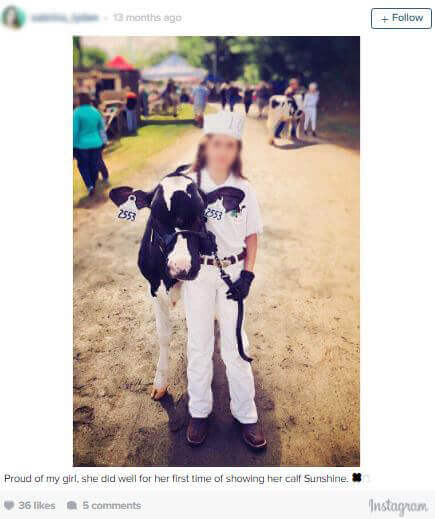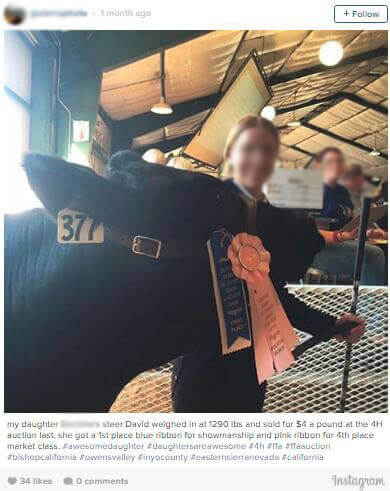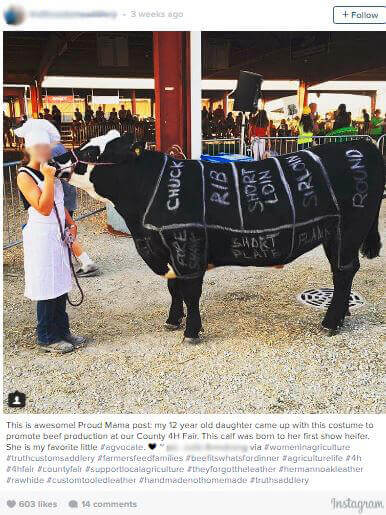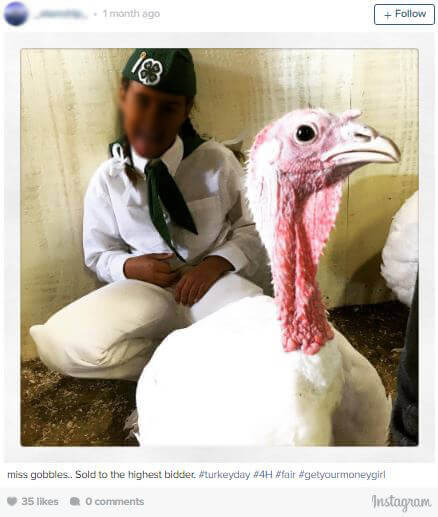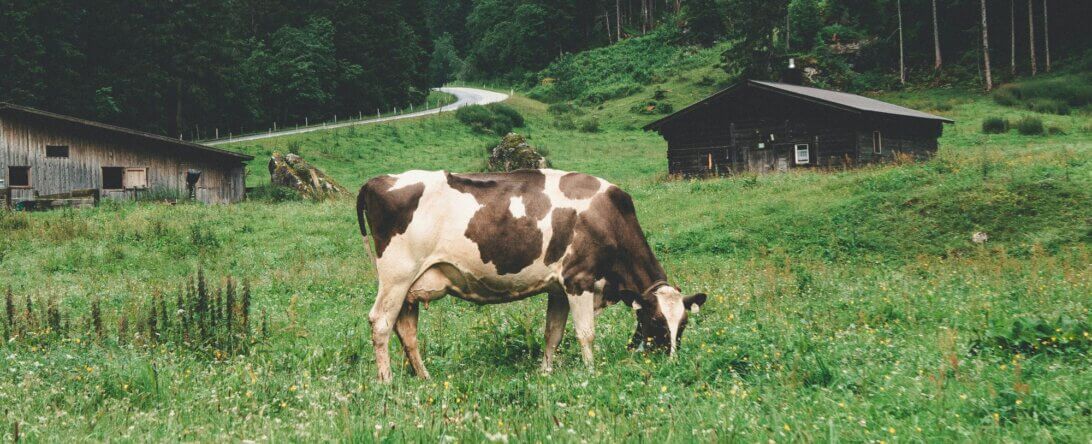This Is What’s Wrong With 4-H
What do you do over summer break? Go on vacation? Binge a new show? Did you make a new friend, hang out with them all summer, and then do nothing to stop them from being killed? Unless you’re a member of 4-H, I bet you didn’t do that last one.
In summer months, but state and county fairs are in full swing. It’s at these fairs that members of 4-H, Future Farms of America (FFA), and other agricultural programs are encouraged to exhibit sheep, goats, pigs, cows, and other animals who are typically destined for one of two fates: to be sold at auction for slaughter or to be used as “breeders” (and likely sent to slaughter later, once they’re no longer profitable).
This post doesn’t mention that David was more than just his flesh—he was someone who wanted to live, just like you do.
4-H encourages members to raise animals for “projects.” Even in the beginning stages of these projects, members are instructed to “identify parts of [their] animal and cuts of meat.” They learn how to care for the animals during this time, but let’s not forget that they’re being taught how to take care of them in a way that will bring in the most profit and win a competition. Instead of teaching kids that animals are individuals who have unique personalities, needs, and feelings, 4-H teaches them to view fellow animals as nothing more than a way to make money.
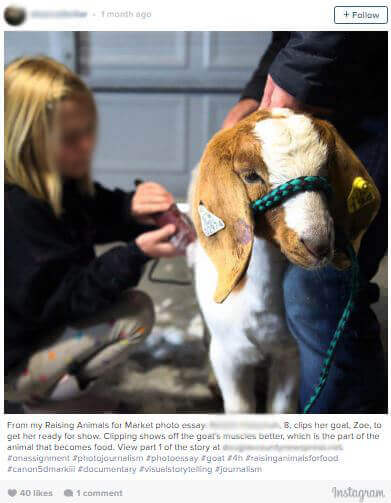
Near the end of the project, 4-H members typically take their new friend to the local county or state fair to compete against other animals. The goal of the competition is to see which animal is worth the most money—and therefore deemed the “winner”—based on his or her flesh, fur, milk, skin, or ability to breed the largest animals. Yep, you got that right: It’s all about profit. But FYI, animals don’t produce their flesh, fur, milk, skin, or babies for humans.
After the fair, most animals are taken to auctions. This is where 4-H members betray their “friends” and celebrate as the animals are sold to the highest bidders, who typically take them to be slaughtered so that their flesh and other body parts can be sold.
Students should be taught to stand up for their friends, not stand by quietly as they’re sent to be killed. It doesn’t have to be this way—no one needs to eat animals. 4-H could easily stop this cruel practice and focus instead on some of the morally right things that it already promotes, like its gardening, expressive arts, and leadership programs. These are activities that we could all feel good about supporting.
If you live near a participating animal sanctuary, you might be able to take part in the Leaders for Ethics, Animals, and the Planet (LEAP) program, which is a compassionate alternative to 4-H or FFA programs that harm animals. You’d have many of the same opportunities that other agriculture programs offer—working with other students from around the region, participating in local events, learning from experts and mentors, receiving financial compensation for your work, and, of course, spending time with the animals—without being encouraged to disconnect from your empathy for other sentient beings and forced to allow the animal you’ve cared for and bonded with to be killed for food. Don’t believe anyone who tells you that burying your compassion for animals deep inside yourself will make you strong. They’re wrong. Being strong means having empathy for animals, even when others tell you it’s a weakness. (If you’re not near an existing LEAP program, talk to your school about starting one!)
If you’re a member of 4-H who’s raising an animal for a project, don’t let your friend be killed! Stand up and say something—the animal’s life depends on it. There are tons of stories of teens in the FFA or 4-H who took a stand and did the compassionate thing. Pledge your head, heart, hands, and health to helping the planet, yourself, and your fellow living beings by going vegan, and speaking up for all animals!
Text peta2 to 30933 for ways to help animals, tips on compassionate living, and more!

Terms for automated texts/calls from peta2: http://peta.vg/txt. Text STOP to end, HELP for more info. Msg/data rates may apply. U.S. only.

